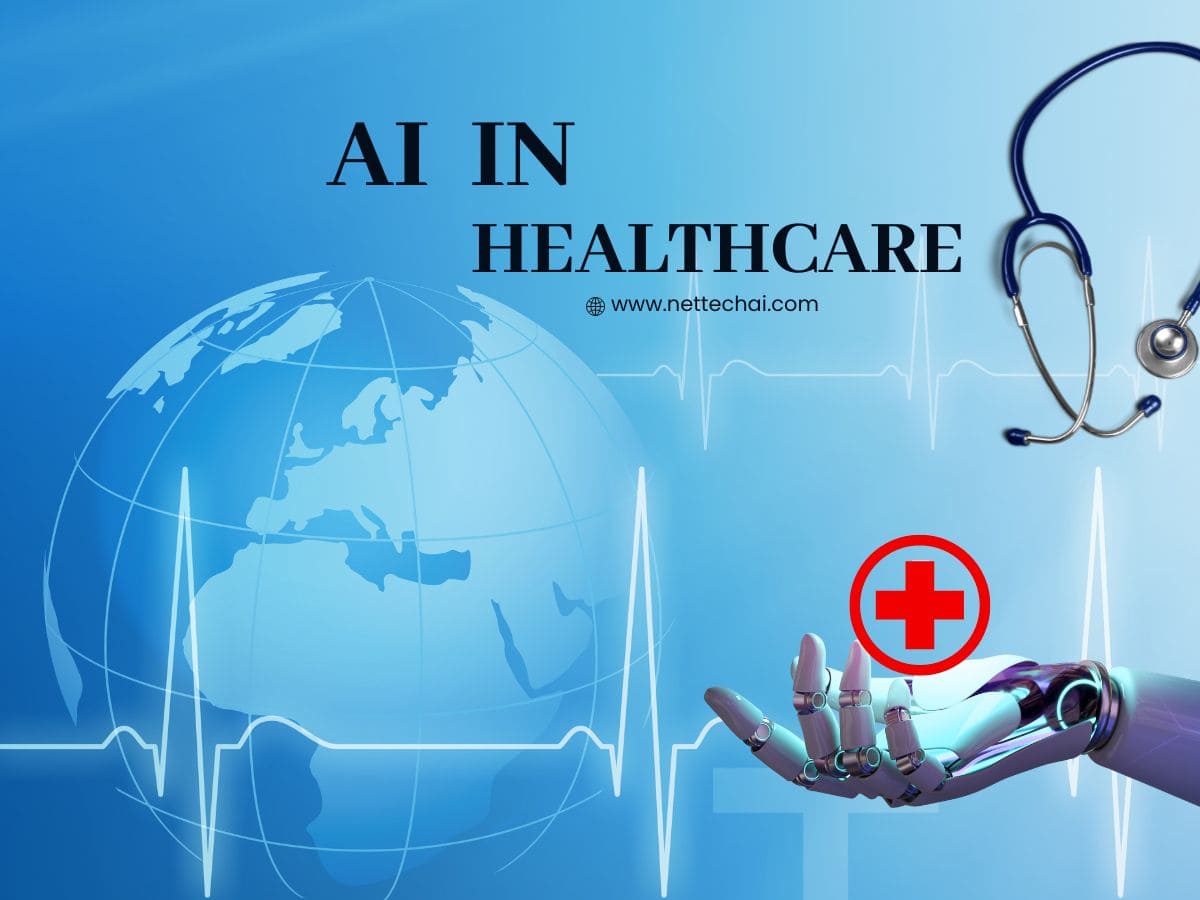AI in Healthcare: Revolutionizing the Medical Industry

The convergence of artificial intelligence (AI) and healthcare has brought about a seismic shift in the medical landscape. This article embarks on a comprehensive journey through the realm of Artificial intelligence in Healthcare unveiling its pivotal role in diagnosis and treatment, delving into its multifaceted applications, exploring its impact on patient care, and addressing the ethical and regulatory considerations that accompany its transformative potential.
Introduction to AI in Healthcare
AI in Healthcare signifies the infusion of intelligent algorithms and machine learning into the medical sector. It has revolutionized disease diagnosis, personalized treatment plans, and medical research. The amalgamation of AI and healthcare has propelled the industry toward more accurate diagnoses, efficient treatments, and groundbreaking discoveries.
The Impact on Medical Research
AI has sparked a revolution in medical research. It expedites data analysis, identifies correlations, and uncovers patterns that were once elusive. Through AI-driven analysis, researchers can pinpoint potential targets for drug development, decipher complex genetic interactions, and unravel the intricacies of disease progression.
Applications of AI in Healthcare
The applications of AI in healthcare span a wide spectrum, redefining medical practices and enhancing patient outcomes.
Medical Imaging Analysis
AI’s prowess in medical imaging analysis is reshaping early disease detection. Algorithms can discern subtle anomalies in X-rays, MRIs, and CT scans, enabling early intervention and improved patient outcomes. This transformative approach holds immense potential for detecting diseases like cancer, heart conditions, and neurological disorders at their nascent stages.
Drug Discovery and Development
AI-driven simulations are revolutionizing the landscape of drug discovery and development. By simulating molecular interactions and predicting drug behaviors, AI expedites the identification of potential candidates and accelerates the drug development process. This not only saves time but also enhances the chances of discovering life-changing treatments.
Enhancing Patient Care
AI is elevating patient care through personalized assistance and predictive analytics.
AI-Powered Virtual Health Assistants
Virtual health assistants, infused with AI capabilities, are empowering patients with personalized guidance and medical information. These assistants offer real-time support, answer medical queries, and provide insights into managing chronic conditions. By offering tailored advice, these AI-driven assistants empower patients to make informed decisions about their health.
Predictive Analytics for Patient Outcomes
AI’s predictive analytics capabilities are revolutionizing patient care by forecasting outcomes and enhancing treatment strategies. By analyzing vast datasets, AI models can predict patient outcomes, detect potential complications, and guide healthcare providers in tailoring treatments for optimal results.
Ethical and Regulatory Considerations
The fusion of Artificial intelligence in Healthcare brings forth ethical and regulatory complexities that warrant meticulous consideration.
Patient Data Privacy and Security
Artificial intelligence in Healthcare operates within a sphere rich with sensitive patient data. Preserving patient data privacy and security is paramount. Robust data encryption, access controls, and compliance with data protection regulations are pivotal to safeguarding patient confidentiality.
Ensuring Regulatory Standards
AI healthcare systems must adhere to rigorous regulatory standards to ensure safety, efficacy, and accuracy. AI algorithms employed in diagnosing and treating diseases must undergo rigorous testing and validation to meet regulatory criteria.
Ethical and Regulatory Considerations
Ethics and regulations form the cornerstone of AI’s integration into healthcare.
Transparency and Explainability
Transparent AI algorithms are essential in healthcare to ensure that healthcare professionals and patients can understand the reasoning behind AI-generated recommendations. This transparency fosters trust and enables healthcare providers to make informed decisions.
Accountability and Responsibility
Developers and healthcare providers bear the responsibility of ensuring AI systems are accurate and reliable. Rigorous testing, continuous monitoring, and rapid response to unexpected outcomes are essential to maintain high standards of patient care.
Looking Ahead
The future of AI in healthcare holds boundless potential, promising breakthroughs and transformations.
Precision Medicine
AI’s capabilities to analyze individual patient data will drive the era of precision medicine. Tailoring treatments to a patient’s unique genetic makeup, lifestyle, and medical history will maximize treatment effectiveness and minimize side effects.
Healthcare Access in Underserved Regions
AI can bridge gaps in healthcare access by providing remote diagnostics and treatment recommendations. This is particularly impactful for underserved regions with limited medical infrastructure.
In conclusion, AI’s integration into healthcare has catalyzed an era of transformation. From early disease detection to personalized treatment plans, AI’s impact reverberates across every facet of the medical industry. As healthcare providers, researchers, and developers navigate the landscape of AI, ethical considerations and regulatory adherence remain paramount. Through responsible innovation, AI in healthcare stands poised to enhance patient care, reshape medical research, and unlock new horizons of medical possibilities.

